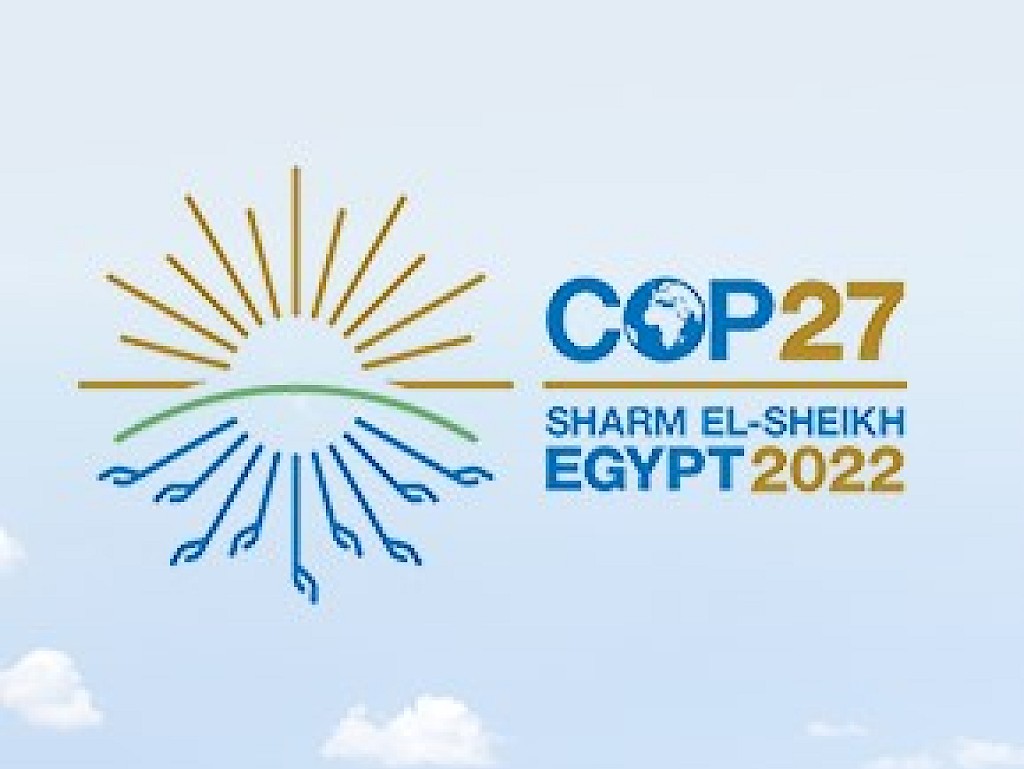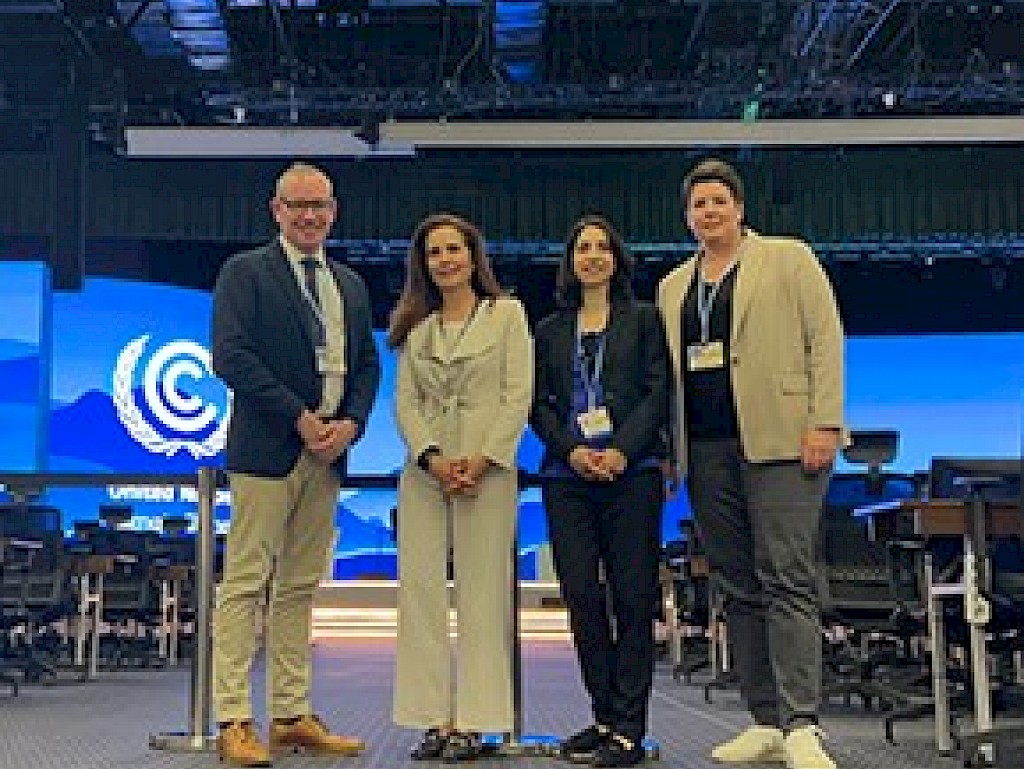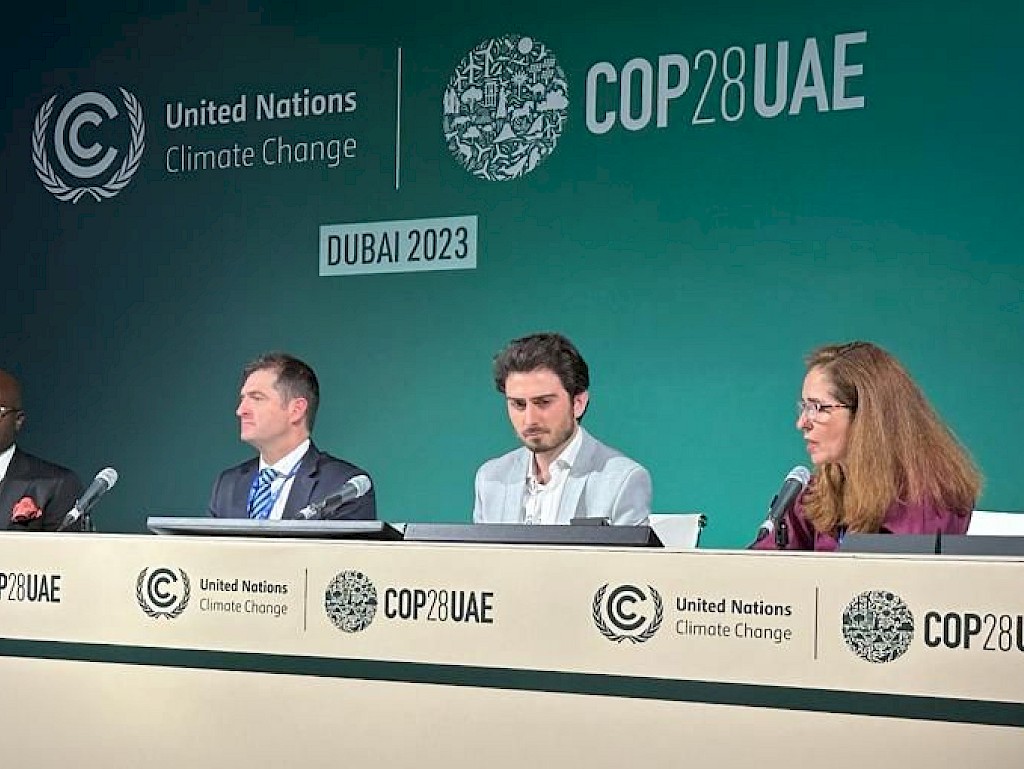COP27 in Egypt delivered an historic agreement to provide loss and damage funding for vulnerable countries hit by floods, droughts and extreme weather events. While this agreement garnered most of the attention, the Sharm el Sheikh implementation plan also addresses other important issues, including:
- Enhancing ambition and implementation
- Science and urgency
- Energy
- Mitigation
- Pathways to a just transition
How Ipieca supports the Sharm el Sheikh implementation plan
As an UNFCCC observer, Ipieca has attended every climate COP event since the first one was held in Berlin in 1995. Aligned with our first Ipieca Principle to ‘Support the Paris Agreement and its aims’, Ipieca attends COP events to host and participate in cross-sector events, workshops and dialogues to explore collaborative pathways to net-zero emissions. As a non-lobby organization we do not participate in the negotiations. Once the event has finished, we work with our members to produce guidance and tools to support the industry contribute to the COP objectives.
Enhancing ambition and implementation
The implementation plan calls for ambitious and inclusive low-emission and climate-resilient developments in line with the Paris Agreement.
Ipieca Impact
In 2022, Ipieca launched the Ipieca Principles as a new condition of membership. The first Ipieca Principle commits members to support the Paris Agreement and its aims, while the second Ipieca Principle is to advance emissions reduction and innovation and enable adoption of low-carbon products and solutions across oil, gas and/or alternative energy. The Ipieca Principles set high sustainability expectations for members and aim to inspire action across the global oil, gas and alternative energy industry.
Science and urgency
At Ipieca we recognize that science should be the basis for tackling climate change. The road to COP27 was marked by the release of the IPCC Working Groups I, II and III reports, and pre-COP UNFCCC hosted climate workshops to explore the issues under discussion. These provided negotiators at COP27 with the scientific and technical information needed to make ambitious policy decisions. Both the reports and workshops benefited greatly from industry expertise.
Ipieca impact
Convening a large portion of the industry (including IOCs, NOCs and suppliers), Ipieca provides industry technical inputs to UN reports and workshops when requested. We also raise awareness of the latest climate science and targets across the industry, holding regular webinars with the IPCC on their reports and amplifying these across the industry.
Energy
The Sharm el-Sheikh Implementation Plan emphasizes the urgent need for global greenhouse gas emission reductions across the energy sector and recognizes the need for energy systems to be secure, reliable and resilient.
The implementation plan refers to the Working Group III report of the IPCC Sixth Assessment as the scientific basis for climate action. This report identifies carbon removal technologies, including CCS, as a key element of limiting global warming to 2°C or 1.5°C by 2100
Ipieca impact
Ipieca supports the industry to contribute to a net-zero future by bringing its members and stakeholders together to share knowledge and develop good practice guidance to enable the industry to lower its operational emissions as well as the emissions of its customers.
Our work is focused on the following areas: lowering operational emissions; energy efficiency; raising awareness and uptake of energy transition enablers; and enhancing road, marine and aviation fuels and products, with select guidance and tools including:
- Flaring management guidance
- Compendium of energy efficiency technologies and solutions
- Methane science, regulations, voluntary initiatives and global expectations workshop report
- Sustainability reporting guidance for the oil and gas industry
- Scope 3 reporting guidance (update coming in 2023)
- CCUS webinar series
- Hydrogen awareness briefing
- Lower-sulphur fuels, road transport strategies and air quality improvements
Mitigation
The implementation plan highlights that limiting global warming to 1.5 °C requires rapid, deep and sustained reductions in global greenhouse gas emissions. This part of the plan emphasizes the importance of protecting, conserving and restoring nature and ecosystems to achieve the Paris Agreement, noting that such response measures should include social and environmental safeguards.
Ipieca impact
Ipieca recognises that natural climate solutions (NCS) do not substitute the need to reduce emissions, but are a complementary solution in decarbonization pathways and can help to accelerate the transformation of the world’s energy systems.
Launched in 2022, the Ipieca-OGCI Natural climate solutions: high carbon stock ecosystems management guidance provides six NCS management practices to ensure that NCS projects deliver positive outcomes to mitigate climate change that also benefit people and nature. In 2019, Ipieca convened a two-day industry and stakeholder workshop on the role of carbon offsets in greenhouse gas mitigation and enhanced ambition.
For over two decades, Ipieca has developed and shared guidance and tools to protect the natural environment. Ipieca is currently working with IUCN to produce guidance that will enable the industry to operationalise the recently launched Global Biodiversity Framework.
Pathways to a just transition
COP27 drove home that hundreds of millions of people worldwide still have no access to electricity, and that for the energy transition to work, it must work for everyone. The increasing recognition of the need for a low-carbon future to go hand in hand with sustainable development was reflected in the Sharm el Sheikh implementation plan. It includes a subsection on pathways to a just transition which affirms the need for meaningful dialogue and participation with all stakeholders to manage and mitigate potential impacts on local communities, workforce and nature associated with the transition.
Ipieca impact
As a key pillar of the energy system, oil and gas is an important contributor to the ambitions at the heart of the UN Sustainable Development Goals — providing the energy needed to support fair growth and improved living conditions for all.
The Ipieca-WBCSD SDG Roadmap provides recommended actions that the industry and Ipieca can take to contribute to a low-emissions future while contributing to a healthier, more prosperous world in line with Paris Agreement and the 2030 Agenda for Sustainable Development.
Ipieca established its Just Transition Task Force in 2021. It supports the oil, gas and alternative energy industry’s participation in international collaboration to transition to a low-carbon world in a way that is just and fair for workforces, communities and consumers.
In 2022, Ipieca published the Just transition literature review. It provides insights on industry relevant stakeholders from UN, NGOs, civil societies, labour rights organisations’ just transition definitions and priorities, to support companies create their own just transition plans.
Ipieca’s upcoming work will focus on just transition indicators for sustainability reports, health and safety as part of a just transition, and continue to engage with IGO, civil society and academic organizations.
Click here to see our full guidance and resources to support a sustainable energy transition



